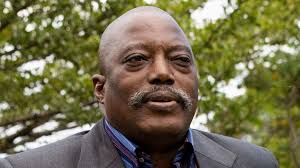
In an unprecedented judicial ruling, former President Joseph Kabila has been sentenced to death by the High Military Court of the Democratic Republic of Congo (DRC), raising profound questions about justice, politics, and national stability.
Tried in absentia, Kabila was found guilty of treason, war crimes, and participation in an insurrectionist movement, with an accompanying order for his immediate arrest and damages exceeding $33 billion.
The trial, which began on July 25, 2025, was marked by extraordinary circumstances. Kabila did not appear in court and lacked legal representation, while many witnesses cited security concerns and did not testify.
Central to the proceedings was the contentious issue of Kabila’s nationality, with some lawyers suggesting he was Rwandan and had governed the DRC as an imposter. The court, however, ruled it lacked jurisdiction to determine nationality.
Prosecutors accused Kabila of leading the AFC/M23 coalition from eastern Congo, inspecting military bases, directing operations, and conducting hostilities against the Congolese state.
Additional charges included homicide, torture, sexual violence, human rights violations, conspiracy, and advocacy of terrorism.
The court ordered Kabila to pay $29 billion to the Congolese state and $4 billion to the provinces of North and South Kivu.
This verdict follows the DRC’s 2024 lifting of its moratorium on the death penalty, making executions for treason or serious war crimes legally possible. Nevertheless, there is no recent precedent for carrying out such a sentence against a former head of state.
The decision has sparked debate: proponents view it as a firm assertion that no leader is above the law, while critics argue the trial was politicized to weaken Kabila as a challenger to the current government.
International observers have expressed concern over the independence of the Congolese justice system, particularly given the volatile security context in the east and alleged foreign interference. Kabila’s attempted return to Goma earlier this year had already heightened tensions.
While immediate execution appears unlikely, the ruling carries profound symbolic weight.
It challenges established norms in Congolese politics and could influence public opinion, electoral calculations, and regional dynamics for years to come.
The nation now waits, suspended between the demands of justice, the pressures of politics, and the weight of history.



